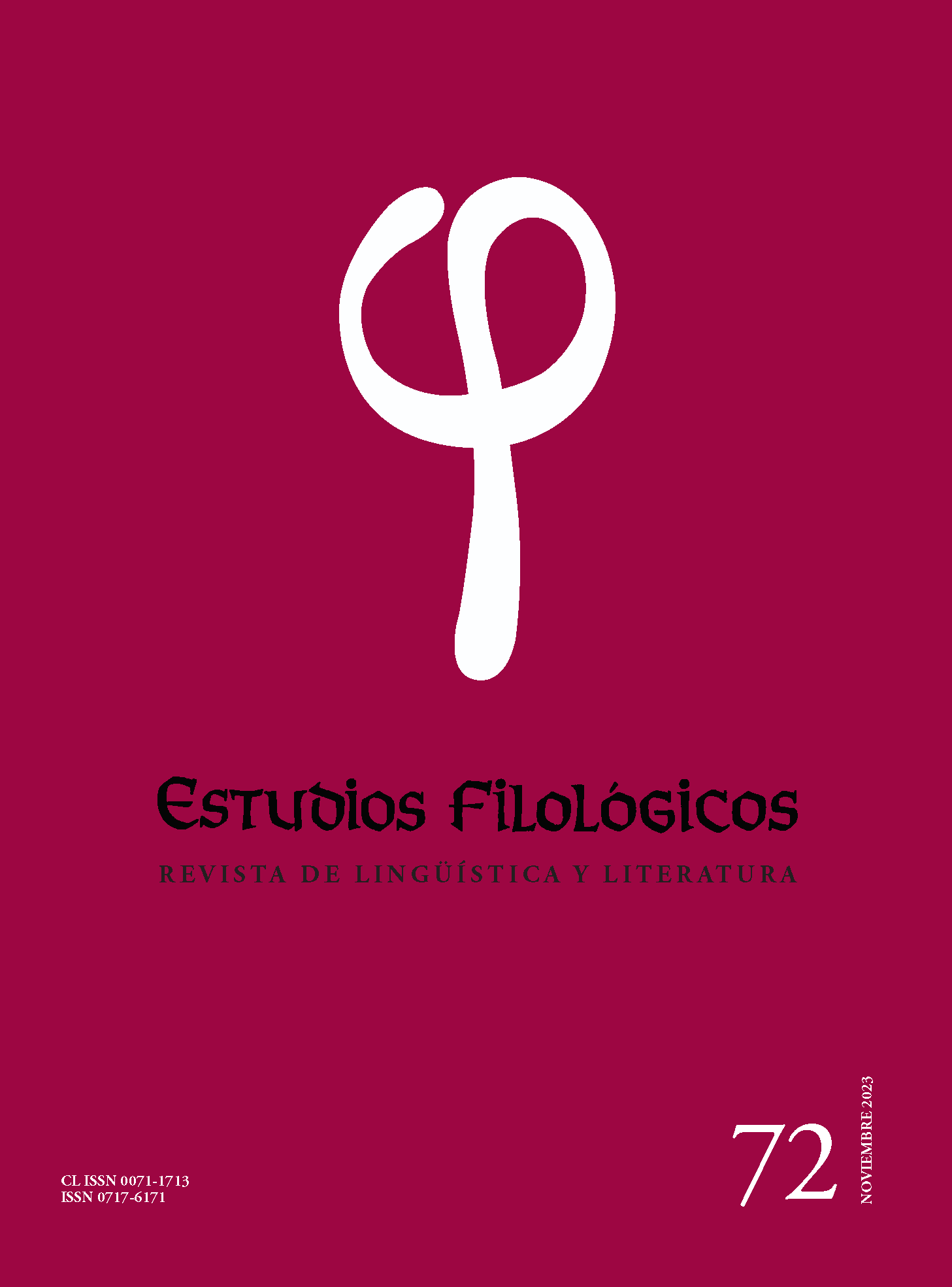Vegetal and affective bodies in Teoría del polen by Victoria Ramírez
Main Article Content
Abstract
In this article I examine the poetry book Teoría del polen (2021), by Victoria Ramírez, under the consideration that its aesthetic proposal discursively dislocates the hegemonic ways of thinking nature, understood from the anthropocentric tradition as a passive and primitive entity. From Jane Bennett’s perspective in Vibrant Matter (2010), I argue that Ramírez’s text develops a vegetal poetics of the affective; that is, a way of positioning plants as acting and vibrant beings, capable of cohabiting horizontally with human beings. This poetics, which I call ‘compost writing’ (Haraway 2019), configures an alternative imaginary of plants, understood under this gaze as active and subjectivized, violent and organized entities, which challenges the binary and hierarchical relations of community (Esposito 2009) between humanity-nature.

